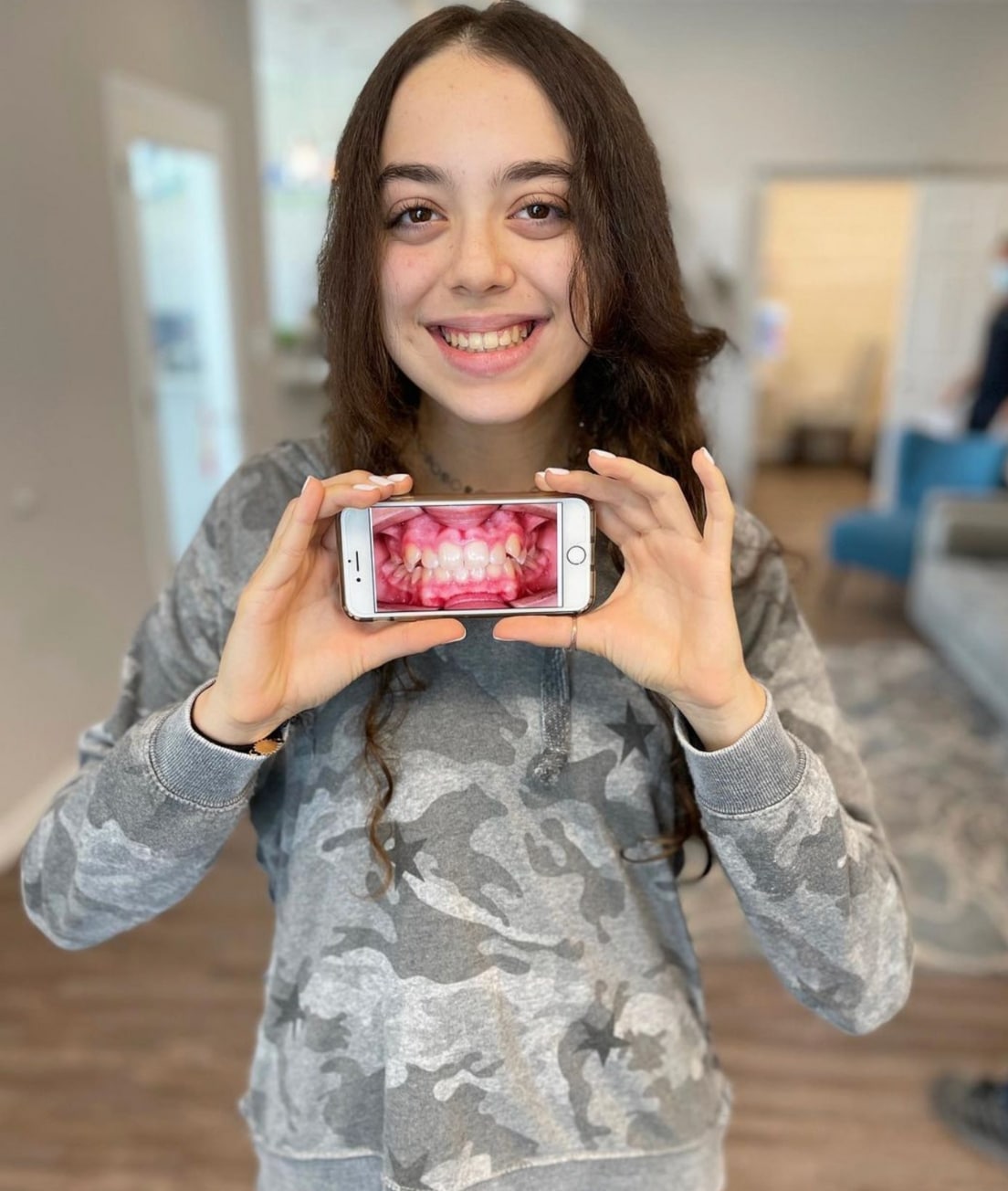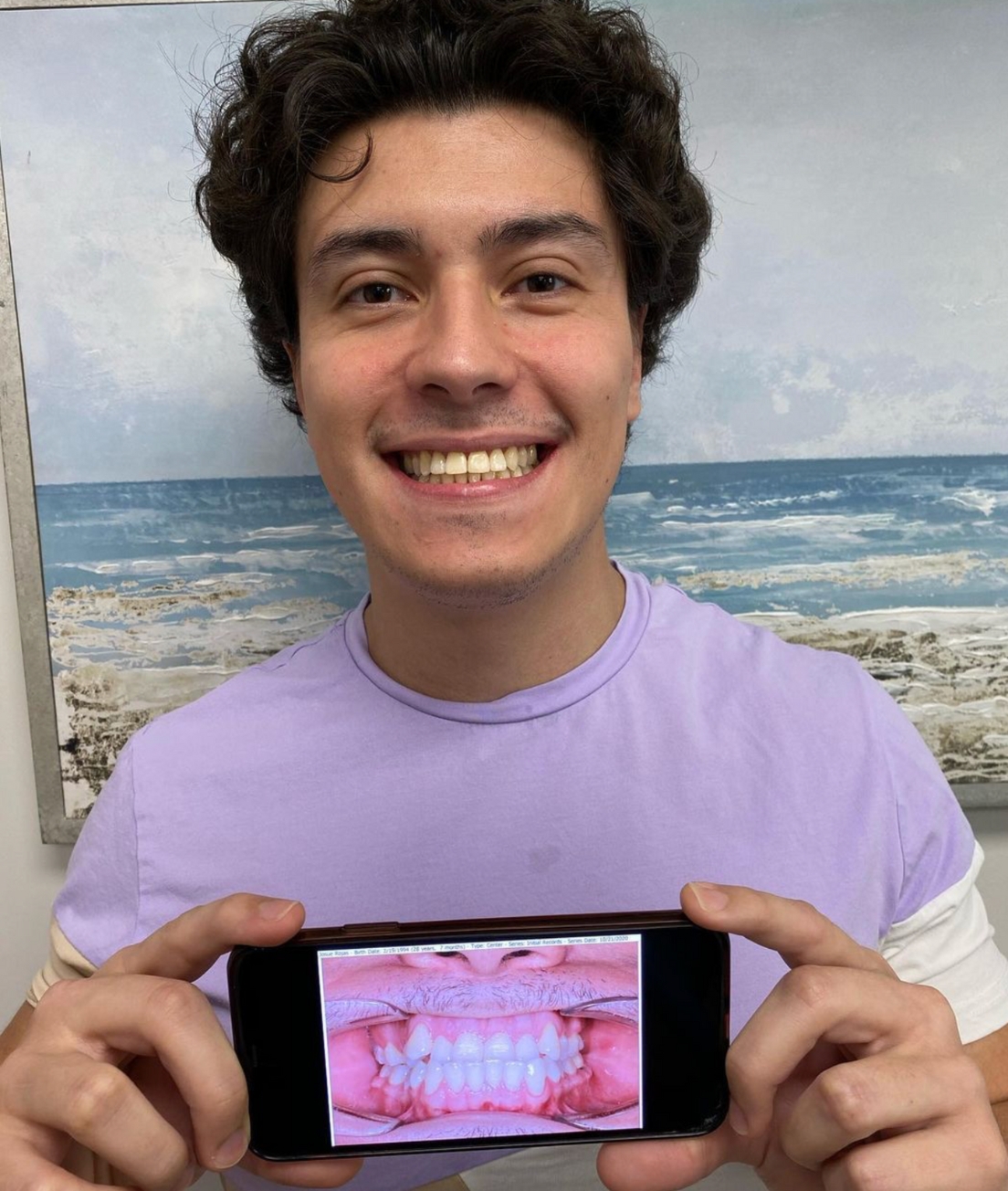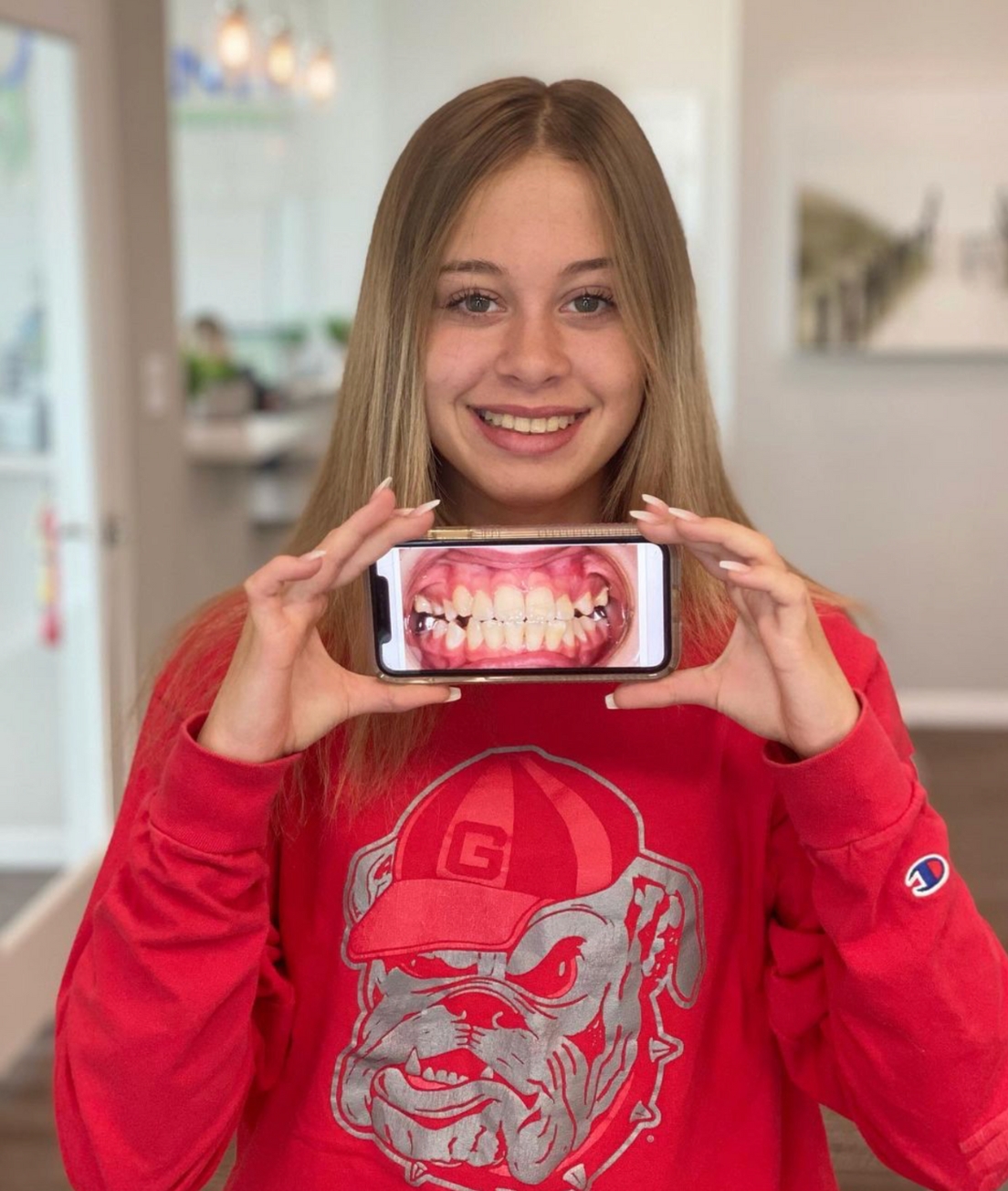Braces Care
All About Braces Tips for Your Smile During Treatment
Wearing braces is an exciting step toward a healthier, more confident smile, but it also means adjusting your daily habits to protect your teeth and your treatment. Whether you’re a parent helping your child or an adult starting your own orthodontic journey, proper care during treatment plays a key role in achieving the best results.
From brushing and eating to managing discomfort and staying active, here’s everything you need to know to make life with braces as smooth as possible.






Brushing and Flossing with Braces
Maintaining excellent oral hygiene is more important than ever when you’re wearing braces. Brackets and wires can trap food and plaque, which can lead to gum disease, tooth decay, or staining if not cleaned thoroughly.
Brush after every meal using a soft-bristled toothbrush and fluoride toothpaste.
Floss at least once a day using floss threaders or orthodontic flossers to reach around the wires.
Rinse with a fluoride mouthwash for added protection.
Tip: Patients with a history of gum disease should continue seeing their periodontist during orthodontic treatment to ensure gum health stays on track.
Here’s what makes someone a good candidate:
They have a bad bite (malocclusion) that cannot be fixed with braces alone
Their jaw position affects their chewing, breathing, or speaking
They’ve reached skeletal maturity
They are concerned with facial balance or jaw asymmetry
Note: Orthodontic treatment often begins 1–2 years prior to surgery to align the teeth properly before repositioning the jaws.
Eating with Braces
One of the most common questions we get is: “What can I eat with braces?” The good news? There’s still plenty you can enjoy! In the first few days after getting braces or following an adjustment, stick to soft foods like:
Mashed potatoes
Smoothies
Yogurt
Pasta
Soft-cooked vegetables
Foods to Avoid While Wearing Braces:
To protect your brackets and wires, avoid:
Chewy foods: bagels, licorice, hard rolls
Crunchy foods: popcorn, ice
Sticky treats: caramels, gum
Hard foods: nuts, hard candy
Foods you bite into: apples, corn on the cob, raw carrots
Also, avoid chewing on pens, pencils, or fingernails—these habits can damage your braces and prolong treatment.
Managing Soreness and Discomfort
It’s normal to feel some tenderness or soreness in your mouth and teeth for the first 3 to 5 days after getting braces. Over-the-counter pain relievers like Tylenol can help ease the discomfort. Your lips, cheeks, and tongue may also feel irritated at first, but they’ll adjust within 1 to 2 weeks.
We provide orthodontic wax to place over brackets causing irritation—this can make a big difference in comfort during the adjustment period.
What If a Tooth Feels Loose?
It might feel unsettling, but a little looseness is a good sign—it means your teeth are moving! As they shift into the correct position, your teeth may feel loose. Don’t worry—once treatment is complete, they’ll stabilize and feel secure again.
Handling a Loose Wire or Band
Occasionally, a wire or band may come loose. If this happens:
Use the eraser end of a pencil to gently tuck the wire back under the archwire.
Apply orthodontic wax or wet cotton if the area is irritating your lips or cheeks.
Call our office as soon as possible so we can schedule a repair appointment.
Only attempt to move the wire if the discomfort is unmanageable and you’re unable to come in right away.
Rubber Bands and Appliances: Why Compliance Matters
Braces alone can’t do all the work. If your treatment includes rubber bands or other appliances, it’s essential to wear them exactly as instructed. Skipping wear time or damaging appliances can delay your results and lengthen treatment time.
Teamwork leads to the best outcomes—your cooperation is key to achieving a great smile!
Playing Sports with Braces
If you’re active in sports, let us know! We’ll provide a custom mouthguard designed to protect your teeth and braces while you play. This is especially important for contact sports like football, basketball, or hockey.
A mouthguard not only protects your smile, but it can also prevent serious injury during a game or practice.